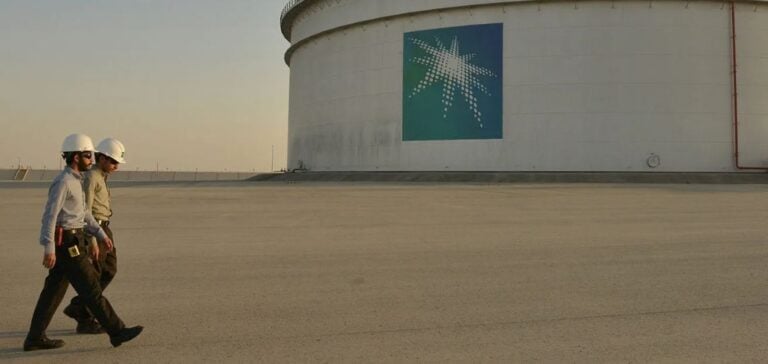Saudi giant Aramco, the world’s largest oil company, announced on Tuesday a significant 15% drop in net profit for the third quarter of 2024. This decline is attributed to the persistent weakness in oil prices and a reduction in exported crude volumes. The net profit for this period is set at $27.56 billion, compared to $32.58 billion at the same time last year. The company attributes this decrease to narrowing refining margins and a shrinking international demand.
Reduced Production: A Pressuring Factor
Saudi Arabia, the world’s largest oil exporter, is currently maintaining a daily production of around 9 million barrels, far below its maximum capacity of 12 million barrels. Since October 2022, the country has made several production adjustments in response to the volatility in crude oil prices. In October of the previous year, the Organization of Petroleum Exporting Countries (OPEC), led by Saudi Arabia, and its allies, grouped under the name OPEC+, announced a coordinated reduction of 2 million barrels per day. This measure, effective until the end of 2024, aims to stabilize oil prices on international markets.
Impact on Saudi Arabia’s Economic Outlook
Aramco’s performance significantly impacts the Saudi economy, as it is the primary source of revenue for the country. The decline in profits may affect projects financed by Crown Prince Mohammed bin Salman’s Vision 2030 program, which seeks to diversify the economy and reduce oil dependency. Aramco directly contributes to funding strategic projects like the futuristic city of Neom, the new Riyadh airport, and several developments in the tourism and leisure sectors.
Ongoing Volatility in the Global Energy Market
The oil market has been subject to geopolitical and economic pressures since Russia’s invasion of Ukraine in 2022, which initially drove oil prices to record highs. However, this price surge has reversed, with a steady decline in prices and fluctuating demand. Aramco benefited from a price hike in 2022, but the return to lower levels has reduced its profits, with decreases of 14.5% and 3.4% in the first and second quarters of 2024, respectively.
Maintaining Its Position Despite Falling Results
Aramco’s CEO, Amin Nasser, stated that the company remains committed to “strengthening its position as a major global player in energy and petrochemicals.” Aramco continues to invest in consolidating its place in the global market despite price fluctuations. The company maintains solid cash flow, which it directs towards its expansion and innovation projects, contributing to Saudi Arabia’s long-term growth strategy in the energy sector.






















